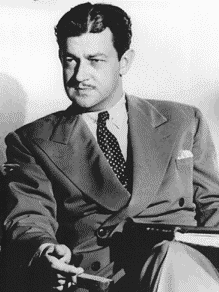A Quote by C. S. Lewis
If you are a Christian you do not have to believe that all the other religions are simply wrong all through. If you are an atheist you do have to believe that the main point in all the religions of the whole world is simply one huge mistake.
Related Quotes
Faith in ourselves will do everything. I have experienced it in my own life, and am still doing so; and as I grow older that faith is becoming stronger and stronger. He is an atheist who does not believe in himself. The old religions said that he was an atheist who did not believe in God. The new religion says that he is the atheist who does not believe in himself
I believe in the fundamental truth of all great religions of the world. I believe that they are all God- given and I believe that they were necessary for the people to whom these religions were revealed. And I believe that if only we could all of us read the scriptures of the different faiths from the standpoints of the followers of these faiths, we should find that they were at bottom all one and were all helpful to one another.
The Vedanta teaches men to have faith in themselves first. As certain religions of the world say that a man who does not believe in a Personal God outside of himself is an atheist, so the Vedanta says, a man who does not believe in himself is an atheist. Not believing in the glory of our own soul is what the Vedanta calls atheism.
All religions are not the same. All religions do not point to God. All religions do not say that all religions are the same. At the heart of every religion is an uncompromising commitment to a particular way of defining who God is or is not and accordingly, of defining life's purpose.
Anyone who claims that all religions are the same betrays not only an ignorance of all religions but also a caricatured view of even the best-known ones. Every religion at its core is exclusive.
Religions are different roads converging on the same point. What does it matter that we take different roads so long as we reach the same goal? I believe that all religions of the world are true more or less. I say "more or less" because I believe that everything the human hand touches, by reason of the very fact that human beings are imperfect, becomes imperfect.
I do believe that the original sources of all religions should be taught, because with that we will find our similarities, not just our differences. I believe that if Mohammed, Buddha, Jesus, and Moses all got together they would be best of friends because the spiritual basis of all religions is something that builds unity.
The word religion literally means, in Latin, to link or bind together; and despite the vast variation in the world's religions, Wilson shows that religions always serve to coordinate and orient people's behavior toward each other and toward the group as a whole, sometimes for the purpose of competing with other groups.
Do not believe in anything simply because you have heard it. Do not believe in anything simply because it is spoken and rumored by many. Do not believe in anything simply because it is found written in your religious books. Do not believe in anything merely on the authority of your teachers and elders.


































